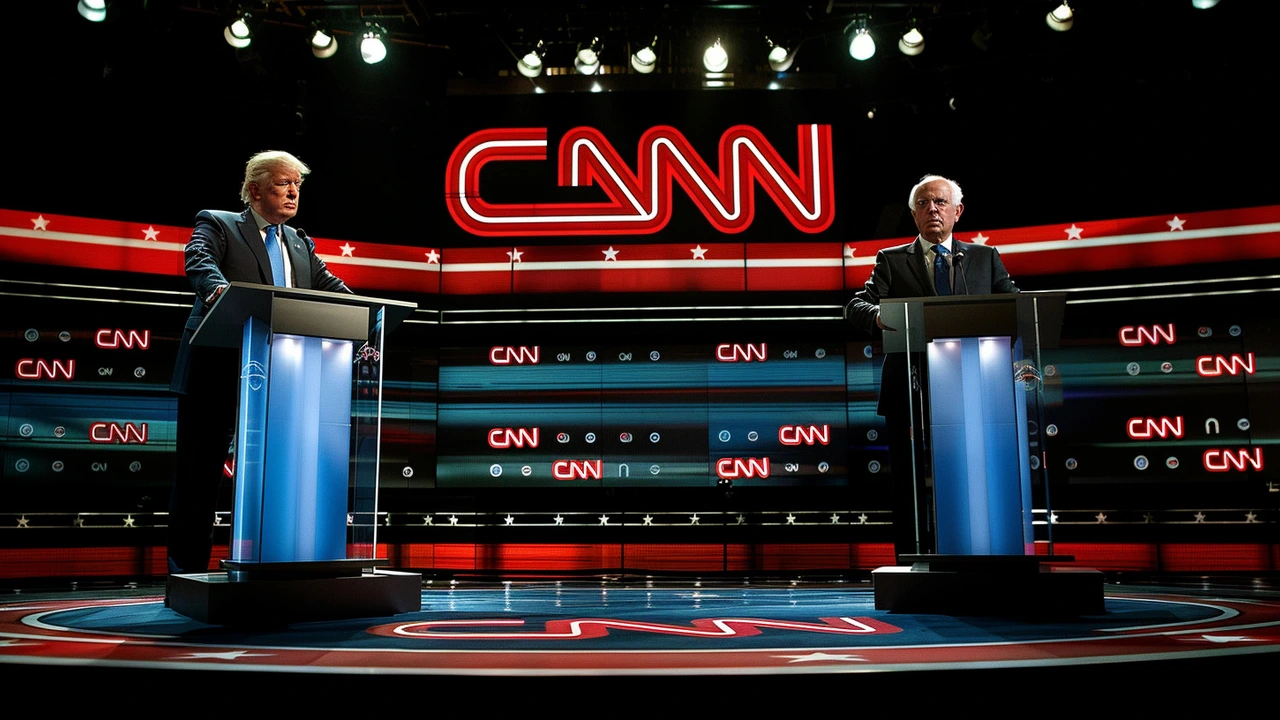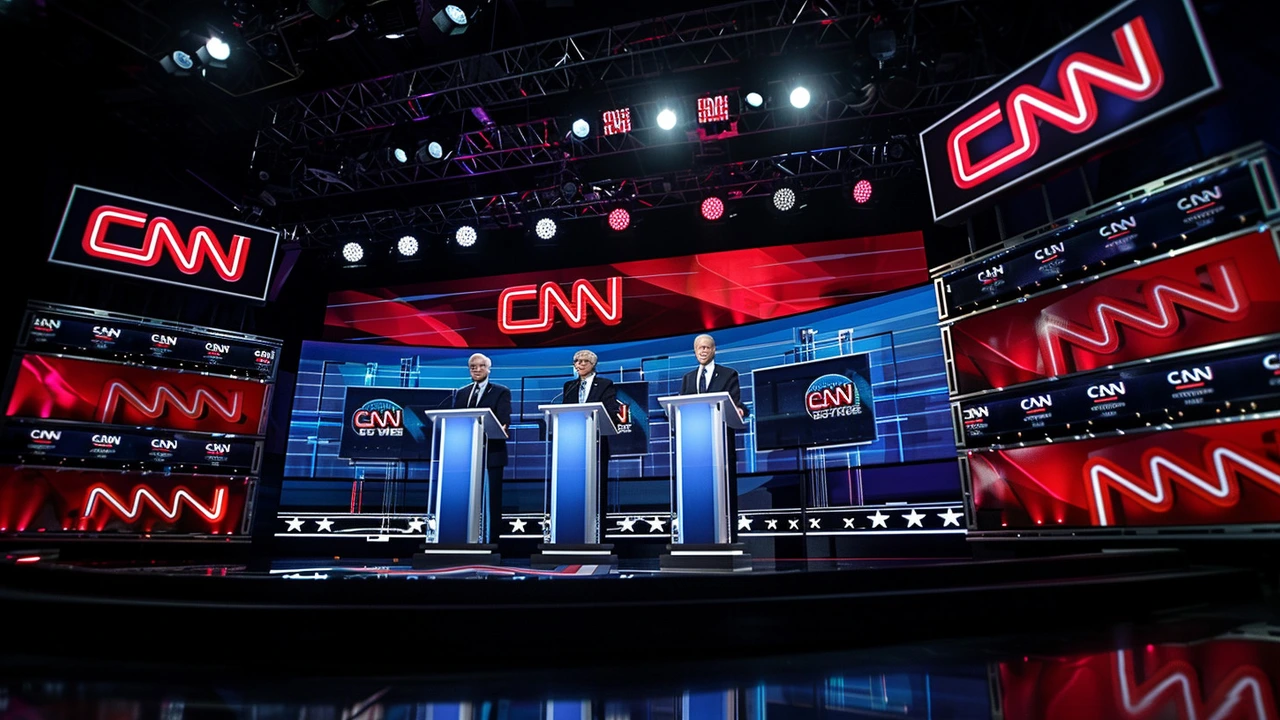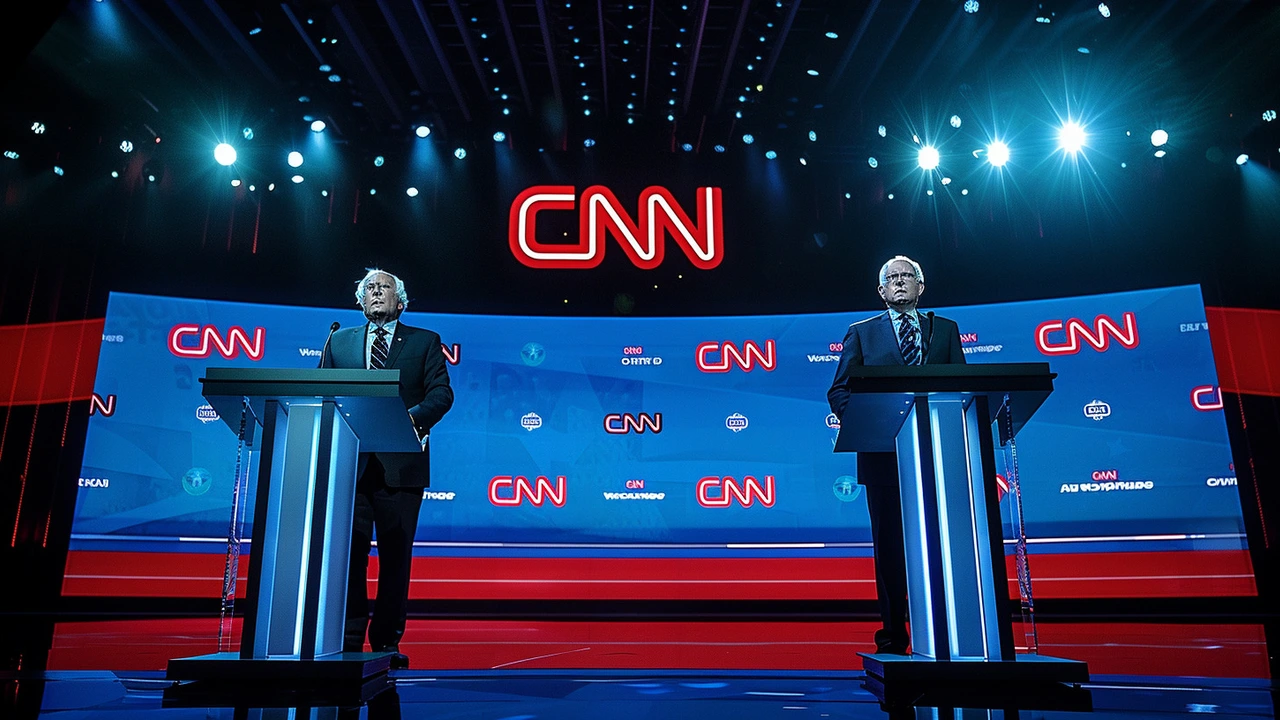Key Insights from the Heated Biden-Trump Presidential Debate

In Politics
Introduction
The recent presidential debate between Joe Biden and Donald Trump proved to be a highly charged event, showcasing stark contrasts in their political views and personal exchanges. It was a night that offered insight into the strategies and policies that each candidate would take into the 2024 election. Here we delve into six key takeaways from this contentious and revealing debate.
1. Israel and Gaza Conflict
One of the most significant moments of the debate revolved around the ongoing Israel-Gaza conflict. Trump accused Biden of being a 'bad Palestinian,' citing his perceived failure to support Israel in their war on Gaza. This war has seen over 37,718 Palestinians killed since October of last year. On the defensive, Biden reaffirmed America's commitment to Israel, highlighting his administration's efforts to curb the influence of Hamas, a Palestinian militant group. The exchange illuminated not just the candidates' views on foreign policy but also their approaches to complex international conflicts.
Biden's stance remained consistent with his administration's actions of providing military and diplomatic support to Israel while blocking ceasefire resolutions. This position has often been criticized both domestically and internationally. Trump's accusations, laden with emotionally charged language, aimed to underscore what he sees as Biden's failure on the global stage.
2. Abortion Rights Debate
The debate's focus on abortion rights brought to light the deeply divisive nature of this issue in American politics. Trump accused Democrats, and Biden in particular, of supporting late-term abortions. He painted a graphic picture, asserting that Democrats would 'rip the baby out of the womb in the ninth month.' Biden firmly denied these accusations, stating unequivocally that neither he nor the Democratic Party supports late-term abortions. He emphasized the need for protecting women's rights while ensuring access to safe and legal abortions.
This exchange highlights the broader ideological battle over reproductive rights in the United States. Trump's inflammatory remarks were aimed at mobilizing his conservative base, while Biden sought to position himself as a defender of women's rights against what he described as baseless and inflammatory rhetoric.

3. Immigration and Border Security
Immigration and border security were inevitable topics, given their prominence in American political discourse. Trump accused Biden of turning 'the safest border in the world into a gateway for terrorists and prisoners.' This accusation is part of a larger narrative that Trump and his supporters have pushed, framing Biden's immigration policies as dangerous and reckless.
Biden countered by highlighting the complexities of immigration reform and the need for humane policies that balance security with compassion. His focus on a comprehensive approach to border security stood in stark contrast to Trump's more simplistic and alarmist rhetoric.
4. Personal Attacks and Tense Exchanges
The debate was not without its share of personal attacks and tense exchanges. One notable moment came when Biden challenged Trump to a golf match, suggesting that Trump should carry his own bag. Trump's retort, 'Let's not act like children,' was a rare moment of levity in an otherwise serious and high-stakes debate. These personal jabs, while often distracting, can reveal a great deal about the candidates' personalities and their ability to handle pressure.
The back-and-forth illustrated the animosity and competition between the two. It raised questions about decorum and the extent to which personal feelings can impact their professional responsibilities.
5. Fact-Checking and Misleading Claims
The debate featured numerous claims that prompted fact-checking. Biden accused Trump of lying about abortion policies. Trump’s assertion that Democrats support late-term abortions was among the most contentious. Fact-checkers have repeatedly debunked such claims, pointing out that late-term abortions are exceedingly rare and typically occur only in cases of severe fetal abnormalities or risks to the mother's health.
These fact-checking exercises are crucial in an era where misinformation can easily spread. The candidates’ statements during the debate were scrutinized, revealing both the accuracy and, at times, the utter disregard for truth.

6. Context and Historical Perspectives
The debate also provided a broader context to the issues discussed. It reflected years of US foreign policy, particularly its unwavering support for Israel. Despite international calls for ceasefire and peace negotiations, the United States, under both Democratic and Republican administrations, has consistently bolstered Israel's military capabilities.
Understanding this context is critical for voters who seek to make informed decisions. The candidates' positions are not formed in a vacuum but are influenced by decades of foreign and domestic policies, partisan divides, and ideological commitments.
Conclusion
The debate between Joe Biden and Donald Trump was a window into the deeply entrenched divisions in American politics. It offered voters a stark choice between two contrasting visions for the country's future. While personal attacks and dramatic accusations dominated much of the discussion, the debate also highlighted critical policy differences on issues like foreign policy, abortion rights, and immigration.
As the election approaches, these debates will likely intensify, providing voters with even more insights into where each candidate stands. The challenge for voters will be to sift through the rhetoric and focus on the substantive policy positions that will shape the next chapter of American governance.
Write a comment